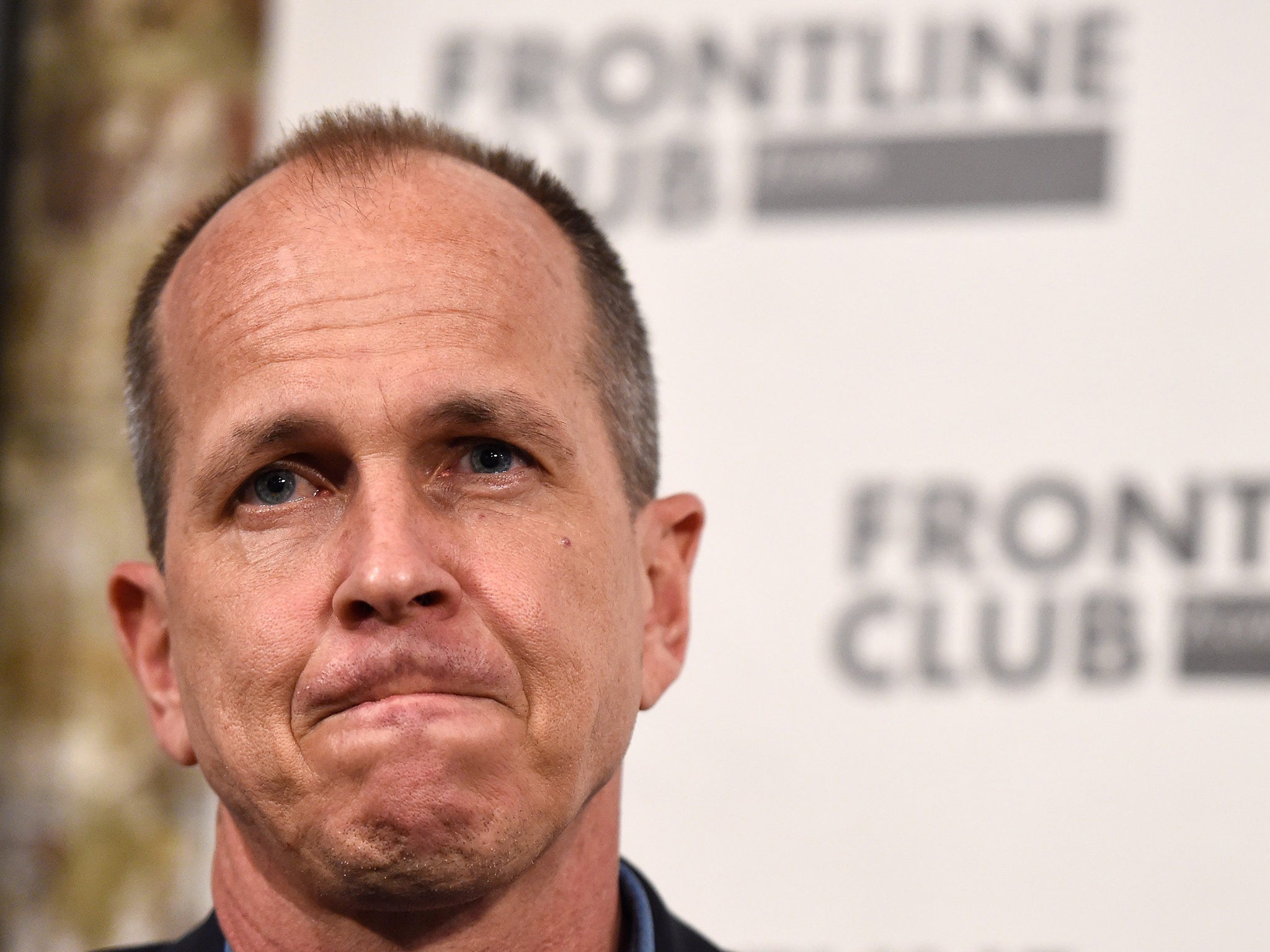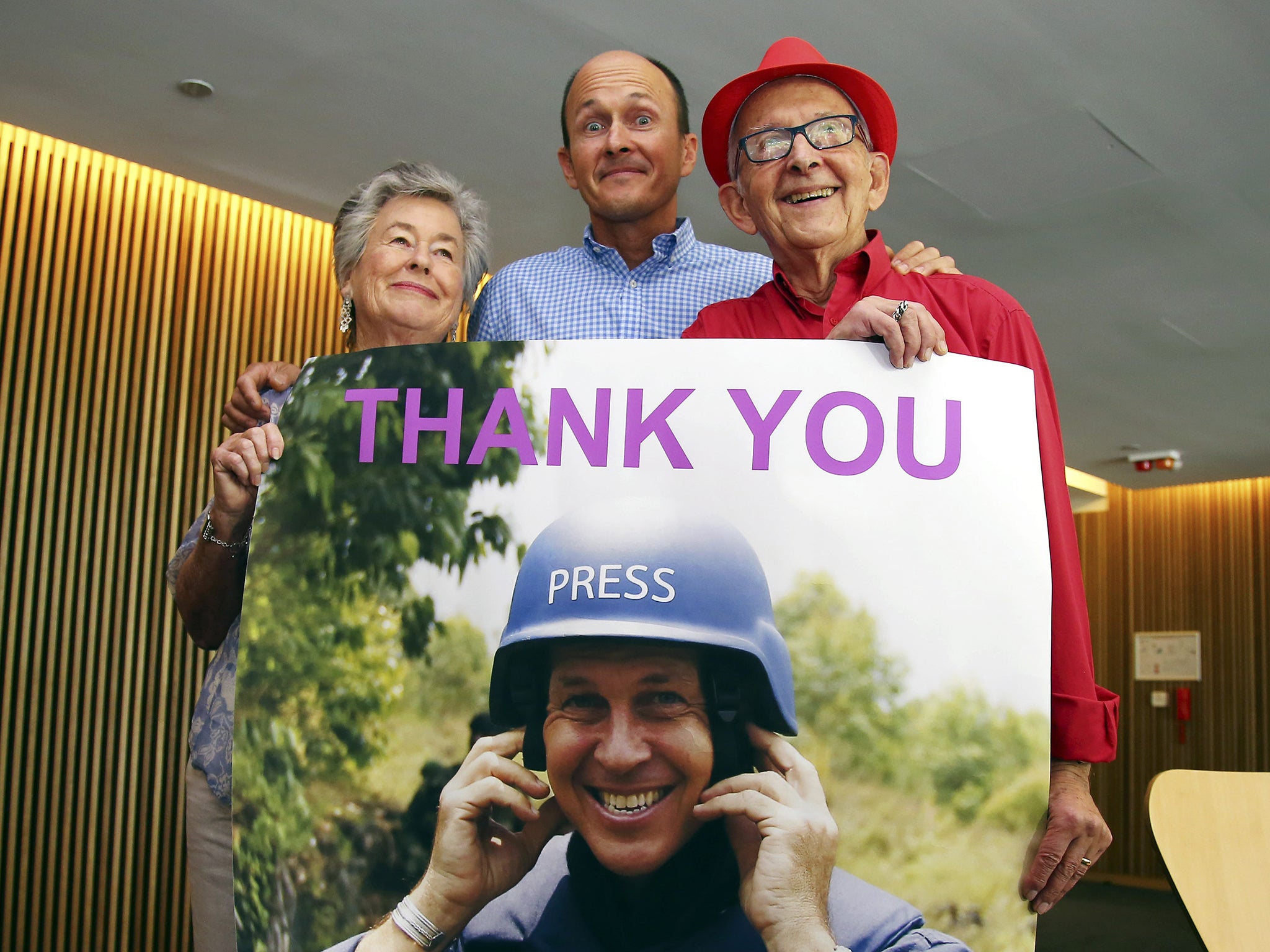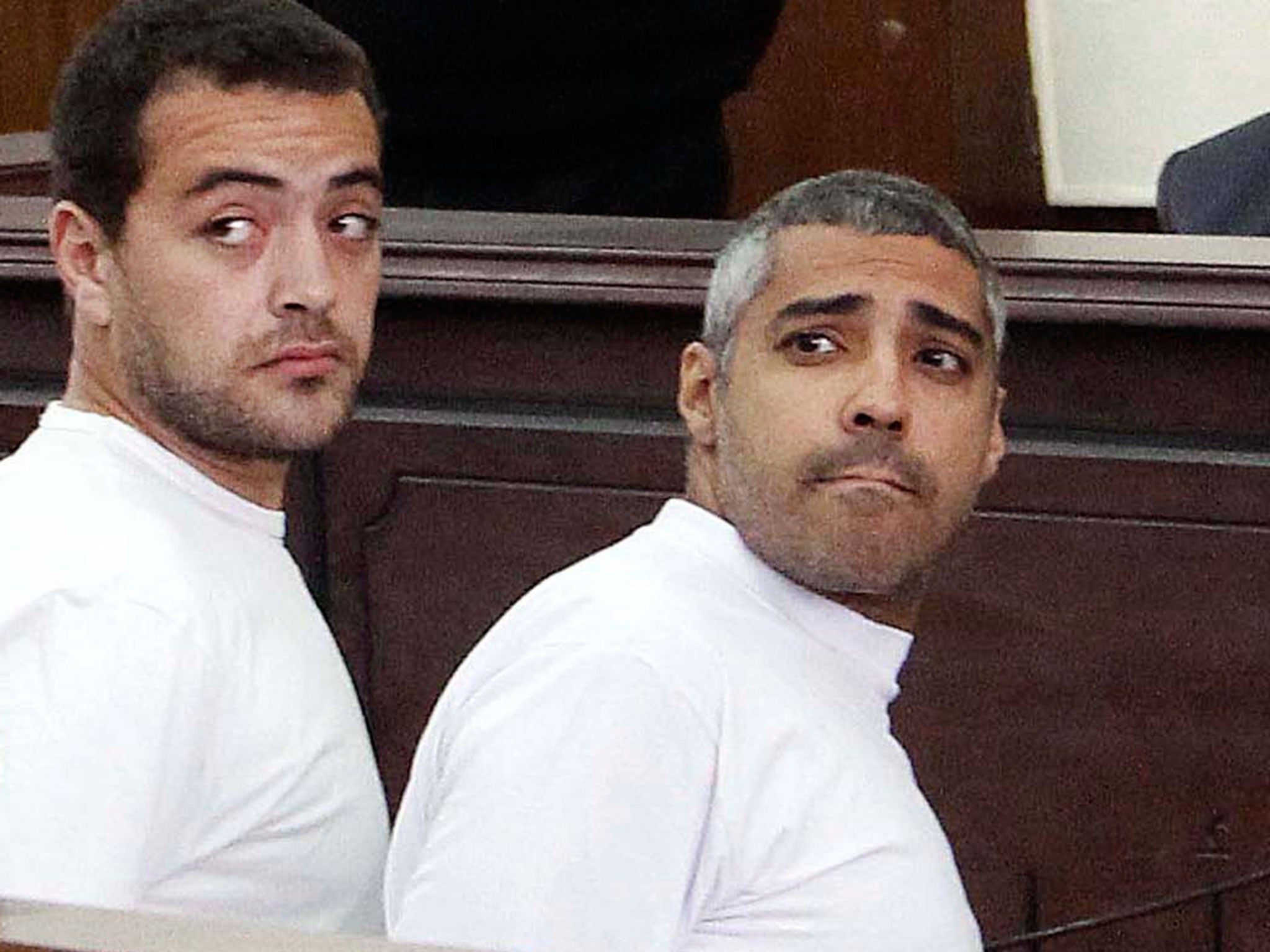Peter Greste interview: 'I didn't see a single sunset for 400 days'
Al Jazeera reporter on his first taste of freedom

“I didn’t see a single sunset for 400 days. I never saw the stars,” said Peter Greste, the Al Jazeera reporter released from an Egyptian cell after international protests over his treatment, as he recalled the bleakest hours of his incarceration.
While the ordeal is over for Greste, an Australian former BBC journalist who was given a seven-year sentence on charges - which were widely viewed as trumped-up for political reasons - of spreading “false news” and helping the banned Muslim Brotherhood, his celebrations will not be complete until his two colleagues have also won their freedom.
Mohamed Fahmy, Al Jazeera's bureau chief in Cairo, and Baher Mohamed, a news producer, face a retrial next Monday following their release on bail, after they too spent more than a year behind bars.
Fahmy, a dual Egyptian-Canadian citizen, was given a seven-year sentence but Mohamed, an Egyptian national, was sentenced to a further three years on a separate charge involving the illegal possession of weapons.

“We are confident that in a trial that follows due process, the conclusion [early release] will be the same. We believe we will be vindicated,” said Greste, who admitted on a visit to London that he has been “overwhelmed” by the response to his release in his native Australia.
“The guys are on bail which is encouraging. We just need to let the courts work their way through. I hope with the bottom of my heart that these guys are released.”
Greste, 49, a Peabody Award for documentaries winner, who reported for the BBC News channel, is determined to put his experience to use by becoming an advocate for freedom of expression, a cause under threat both from authoritarian governments and extremist Islamic groups.
Greste said: “As long as this issue has helped raise the profile of the debate about freedom of expression - the public’s right to know and the freedom of the press in a functioning society - then I think it’s been worth it.”
He hopes to capitalise on the global campaign which ultimately influenced the Egyptian authorities. “We are now very strongly identified with freedom of the press and freedom of speech. We’ve built a platform. I think it would be an abrogation of responsibility for us to walk away from that, so I’d like to take on a role as an advocate.”
Based in Nairobi, Greste had been sent to Cairo by Al Jazeera to cover for a colleague in December 2013, when his nightmare began.
“A bunch of guys pushed their way into my room at the Marriot. They weren’t in uniform, they didn’t tell me what they were doing,” he said.
“They started turning the room upside down and grabbing equipment. They marched me down and put me in a police cell. We didn’t have any idea what was going on.

“We were doing the work any responsible journalist would do. I wasn’t familiar with the boundaries so we were quite deliberately playing it safe. We weren’t pushing any ethical boundaries.”
The arrests were widely seen a politically motivated, as Egypt sought to punish the Qatar-owned Al Jazeera for its country’s perceived support for the Brotherhood, before the coup led by President Abdel Fattah al-Sisi.
Since the evidence was non-existent, Greste assumed the charges would disappear after a few diplomatic phone calls. “They presented a Gotye song in court. It was on somebody’s mobile phone. They were fishing for evidence but it didn’t prove anything. The judge took a different view.”
“We were in solitary for a period. Prison is prison – it’s going to be tough under any circumstances. It’s the little things you miss, like wiggling your toes in the beach in the sand.
“We were devastated by the seven-year sentence. We never seriously believed we’d be convicted. It felt like being hit by Mike Tyson.”
His eventual release was no less of a shock. “I was getting prepared for a much longer haul in prison. I went for a run and one of the officers said ‘the boss needs to see you.’ He said ‘pack your stuff. You’re leaving.’ Where? ‘The embassy is coming in half an hour, you’re going home.’ I didn’t believe it.” An appeals court has since overturned the convictions.
Greste won’t comment on Fahmy’s accusation that Al Jazeera had failed him by neglecting to post his £23,000 bail. The Australian said the Qatar station, often accused of bias, allowed him more freedom than the BBC.
“I’ve never had any editorial interference. I’ve been given greater editorial freedom with Al-Jazeera than I had even at the BBC because the BBC is in an environment where it’s got to consider costs much more seriously than al-Jazeera does.”
Greste picked up a special Royal Television Society award in London this week whilst his two colleagues, who shared the prize, watched from Cairo on a live webcast.
Next is a book - “almost par for the course after an experience like this” - and more documentaries, but he doesn’t think he could return to being a “common or garden correspondent”.
Join our commenting forum
Join thought-provoking conversations, follow other Independent readers and see their replies
Comments
Bookmark popover
Removed from bookmarks